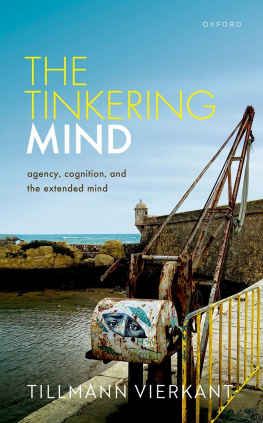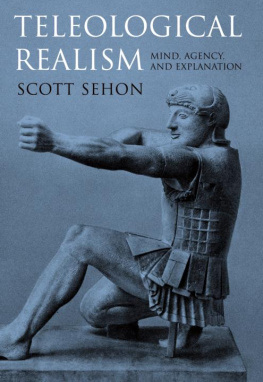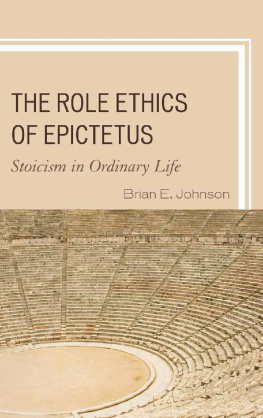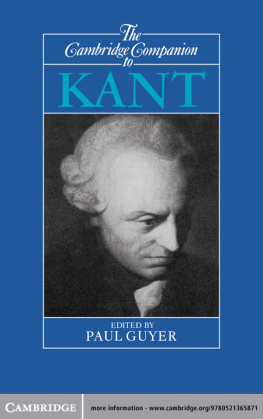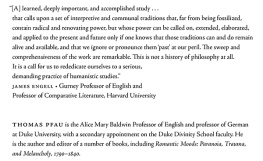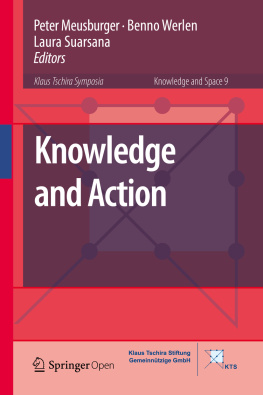Action, Knowledge, and Will
John Hyman
(p.iv) 
- Great Clarendon Street, Oxford, OX2 6DP,
- United Kingdom
- Oxford University Press is a department of the University of Oxford.
- It furthers the University's objective of excellence in research, scholarship,
- and education by publishing worldwide. Oxford is a registered trade mark of
- Oxford University Press in the UK and in certain other countries
- The moral rights of the author have been asserted
- First Edition published in 2015
- All rights reserved. No part of this publication may be reproduced, stored in
- a retrieval system, or transmitted, in any form or by any means, without the
- prior permission in writing of Oxford University Press, or as expressly permitted
- by law, by licence or under terms agreed with the appropriate reprographics
- rights organization. Enquiries concerning reproduction outside the scope of the
- above should be sent to the Rights Department, Oxford University Press, at the
- address above
- You must not circulate this work in any other form
- and you must impose this same condition on any acquirer
- Published in the United States of America by Oxford University Press
- 198 Madison Avenue, New York, NY 10016, United States of America
- British Library Cataloguing in Publication Data
- Data available
- Library of Congress Control Number: 2014949673
- Printed and bound by
- CPI Group (UK) Ltd, Croydon, CR0 4YY
- Links to third party websites are provided by Oxford in good faith and
- for information only. Oxford disclaims any responsibility for the materials
- contained in any third party website referenced in this work.
Dedication
(p.v) For George
(p.viii) (p.ix) Preface
The main ideas I shall defend in this book can be summarized quite briefly.
First, human agency has several distinct dimensions, some of which it has in common with the agency of other animals, or other agents more generally, others of which it does not. For we can think about human agency in physical, psychological, intellectual, and ethical terms. And we cannot hope to understand it philosophically unless we understand how these different dimensions of agency are defined, and how they are related.
If we survey the philosophy of action in the modern period, bearing this in mind, it is bound to seem painfully inadequate. Modern philosophy developed a remarkably simplistic theory of action, which eventually enabled philosophers to equate action in general, human action, voluntary action, intentional action, and action done for reasons. It was less an intellectual revolution than an earthquake, and it levelled a complex conceptual structure that enables us to think and reason effectively about the different dimensions of human agency. One aim of the book is to criticize this relentlessly simplifying philosophy and reconstruct the edifice, separating the storeys that were sandwiched together in the collapse.
Second, understanding the intellectual dimension of human agency involves thinking about the relationship between knowledge and rational behaviour in a substantially new way, and this offers the prospect of a new conception of knowledge itself. Many philosophers still think of knowledge as what Ryle sardonically called an lite suburb of belief, true belief with a special accreditation or guarantee. But unlike belief, knowledge is an ability, so if we want to understand what knowledge is, and why we value it, we need to ask what it is an ability to do, instead of asking how it can be certified or acquired. We need to think prospectively not retrospectively, about how knowledge is applied, employed, expressed, in the infinitely varied circumstances of human life. In the last three chapters, I shall make a case for reorienting the theory of knowledge in this way.
(p.x) Combining these two tasks means in effect realigning the philosophy of action and the theory of knowledge, and reforming received ideas about some of the main structural features of our thought about human actionin particular, about the relationships between voluntary agency, intentional agency, rational agency, and agency as such; about the explanation of intentional action; and about the distinction between activity and passivity in human life. But I do not want to exaggerate how radically I am departing from tradition. Philosophy does sometimes seem incapable of making gradual progress, so that only the most violent attack, with its own kind of excess, can overcome the vested interests of the ancien rgime, and achieve deep and lasting change. But this is a pity, because philosophical theories are more often exaggerations or simplifications than intellectually worthless houses of cards.
So it is, I believe, with the theories of human action that emerged in the third quarter of the twentieth century, when first Wittgenstein and Anscombe and then Davidson held sway. Their ideas are still dominant, but we have gained sufficient distance from them in recent years to reassess the whole subject, freed by their efforts from the errors they criticized, but also free from the intellectual trap of discipleship.
The philosophy of action takes up most of the book because the range of concepts it involves is large and complex, and the dominant ideas about them are deeply rooted in early modern philosophy. My aim in this part of the book is analytical rather than historical, as it is throughout, but I have included a certain amount of historical material because even the ideas that philosophers imagine they spin out of themselves like spiders have long and complicated histories, and we cannot hope to understand them, or assess them properly, or improve on them, unless we know about their past. Philosophy is not a formal discipline: logical acumen is not enough.
My approach is therefore partly historical, but my aim is to contribute to the development of the philosophy of action, in two main ways: first, by encouraging an approach to the study of human agency that emphasizes the distinctions between its physical, ethical, psychological, and intellectual dimensions; and second by bringing the most general questions in the theory of knowledge within its compasswhat knowledge is and why it is of value; why, as Julian the Apostate put it, the serpent was a benefactor rather than a destroyer of the human race.
My plan for this book was always to combine epistemology and the philosophy of action, and I always intended to keep the text close to 100,000 words, (p.xi) in the hope that it might be read as a continuous argument, and not just cited or searched. I therefore knew that I would be unable to discuss some important topics in the philosophy of action, and so it has turned out. There is nothing here, or next to nothing, about the social dimension of human action; about deliberating, deciding, and intending; about trying and attempting; about strength, weakness, and freedom of the will; or about processes and events. And there is nothing about so-called mental acts in general, as opposed to acts of will in particular. Consequently, several interesting and influential studies in the philosophy of action do not receive the attention they would require in a more comprehensive work. But like every author, I hope my work will be judged mainly by what I have written, rather than what I have left out.



